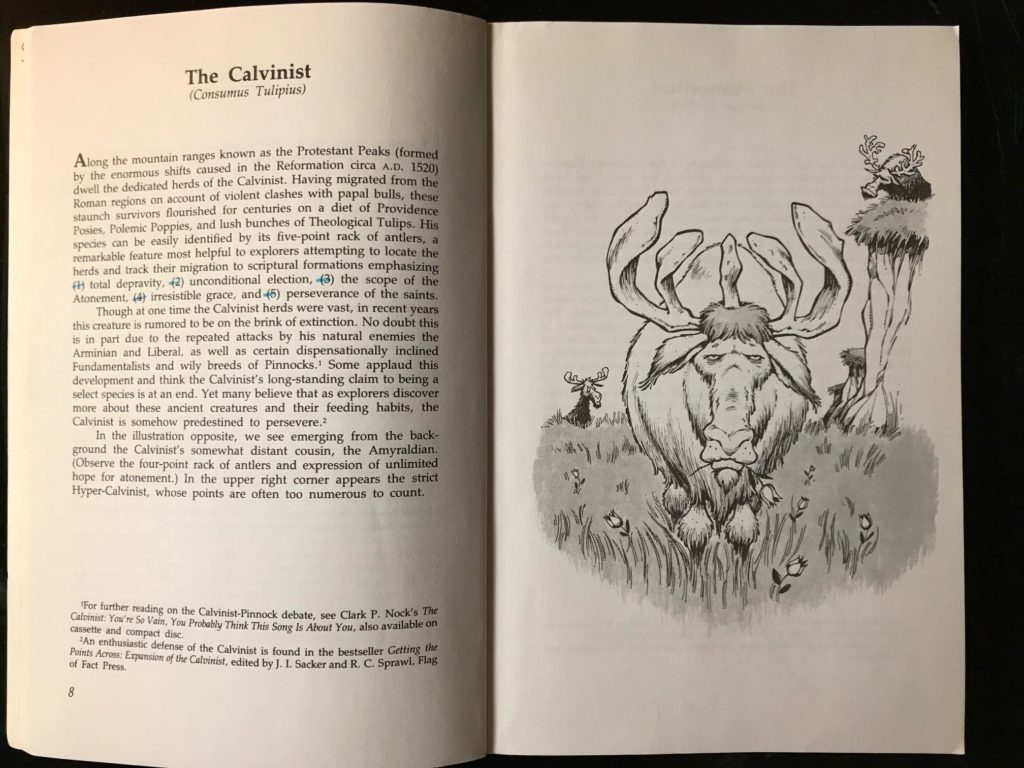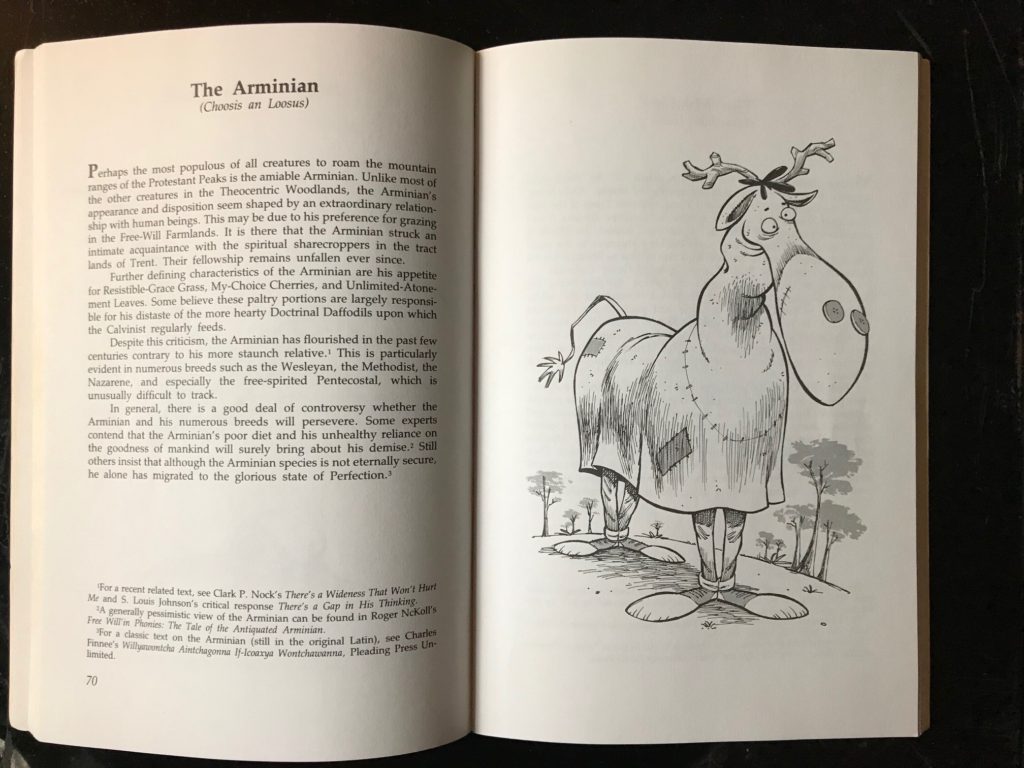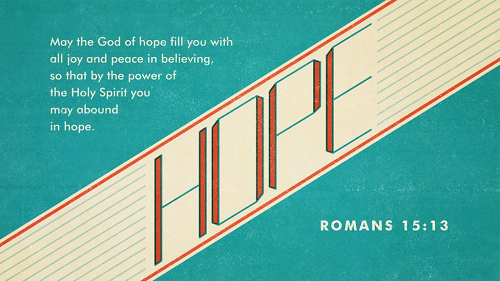Opener: Too often we let theology become more important in our lives than the person to whom our theology is pointing. In so doing, we actually act in ways that are counter to what our Master teaches. In today’s blog post, a guest blogger asks some insightful questions about Calvinism.
Guest Blogger
Our church has been going through the book of Romans on Sunday mornings. Inevitably, when going through the book of Romans, the sticky theological issues of predestination/election/etc. come up. As we prepared to teach Romans, one of our congregants, Kathleen Wilch, mentioned that she had written a blog post on TULIP. I asked to see it and then offered to post it on my blog.
Kathleen asks some good questions about Reformed Theology and a doctrine that too often causes division. I think we can all learn from these thoughts and questions.
Introduction
A couple years ago, a church nearly split due to the loss of nearly one third of their members. These members left because the pastor began preaching Reformed Theology, with a heavy emphasis on the five points of Calvinism (aka TULIP).
Further, I recently had a dear friend (raised Baptist) who joined a Presbyterian Church. She told me that she had to get her mind around Baptist theology before she could understand Presbyterian theology.
Why is this emphasis on Reformed Theology dividing the body, and does it really matter in terms of our daily walk, prayer life, and witnessing?
In an effort to gain some clarity around these questions, I have attempted to briefly summarize each of the five points below. If you would like additional information directly from a Reformed source, the website https://www.calvinistcorner.com/tulip.htm provides a concise summary of each of the five points.
T – Total Depravity
Calvinism teaches that man is totally depraved–dead. God must raise him and give him life in order for him to receive the gospel. Conversely, others believe that the Holy Spirit can lead an unbeliever to the Gospel, where the Gospel makes him alive in Christ.
I can appreciate nuanced theological differences, but does this theology actually impact my walk with the Lord?
No.
From either perspective, nothing changes in my daily walk. I don’t witness differently, and I don’t pray differently.
All I know is while I was dead in my trespasses, God made me alive with Christ (Ephesians 2:1-7)!
U – Unconditional Election
This is the either/or approach to Scripture. In this approach, God chooses those who will receive salvation, period. Such an approach does not allow any element of choice to enter the picture. Unfortunately, it does not adequately address “whosoever will” (Revelation 22:17) and related verses in Scripture. Is it possible to say it is both/and? That both election and free will are subsets of God’s sovereignty? I think so, because we all still “see through a glass, darkly” (1 Corinthians 13:12).
Even if you answer, “no,” and come down firmly on one side or the other, what difference does it make? I am saved, and God is at work in me to change me from “glory to glory” (2 Corinthians 3:18) that I might do the works He has chosen for me (Ephesians 2:10). Does it really matter how I got here, other than by grace alone, through faith alone, in Christ Jesus alone? Does my understanding of how the process worked change my salvation or my relationship with God?
L – Limited Atonement
Is Christ’s death for all, or just for those who are chosen? Some Calvinists assume that if you say Christ died for all, the logical conclusion is universal salvation. But one can also argue that Christ’s atonement gives all men and women the opportunity to come to Him. The biblical criteria for salvation does not change; thus, ultimately, Christ’s death is only efficacious for those who believe and are saved.
Again, unless you take this to the extreme and become a Universalist on the one hand or a double-predestinationist on the other hand, how does your position on limited atonement effect your witness or your walk?
I – Irresistible Grace
Whether God’s grace is irresistible or I can choose to experience it and walk away is something that we ultimately do not know. It is a matter for theologians with time on their hands.
I continue to repeat my initial question. What does it matter in terms of how you live your life for Christ or share Christ with others?
P – Perseverance of the Saints
You cannot lose your salvation. Here, most believers would agree, and certainly Scripture gives us that assurance. As Adrian Rogers used to say, “we know that we know that we know!” We also know that we must “work out our salvation” (Philippians 2:12), an effort that Jerry Bridges calls “dependent responsibility.”
It grieves my heart that this issue causes arguments and divisions among my brothers and sisters in Christ.
I think Satan is having a field day.
Conclusion
I love jigsaw puzzles. Several years ago my husband gave me a puzzle for my birthday. It was a bag of pieces with no picture. I started out, as I always do, finding the edge pieces and putting the frame together. Fitting the pieces in without the big picture to guide me was challenging, but finally, as the last pieces fell in place, I saw the whole picture. My husband had turned a picture of me and my three grandchildren into a puzzle.
We framed that puzzle, and I now see it every day. It reminds me that only God has the big picture, and I must be content with what He has revealed. One day, I will see clearly, and I will see the big picture. Right now He knows everything I know, but I don’t know everything He knows. I must fight the temptation to build explanations and instead walk in the knowledge He has provided.
Application
Why did the church referenced in the Introduction nearly split due to Reformed Theology? Ultimately, it was just disagreement over the doctrine. And that leads me to this final point. We must live in unity with our brothers and sisters in Christ (Ephesians 4:3, 5:15-21; Philippians 2:1-3).
I [Steven] address this in more detail in chapters 8 and 9 of my book The Relational God. Satan does indeed have a field day when we let our theological differences on non-essentials (like Calvinism) continue to divide the body of Christ or limit our fellowship with one another. That is the real danger and the real foolishness of theological differences.
One way we can guard against letting theology become an idol is to not take ourselves so seriously. We have to be able to laugh at ourselves. To that end, I posted two pages below from a book (now out of print) called Wildlife in the Kingdom Come (Zondervan, 1993). Long before Babylon Bee or Jon Crist, this was a very clever attempt at humor in theological circles. The authors, Ken C. Johnson and John H. Coe look at 60 “Critters and Creatures of the Theological Kingdom.”


Final Thoughts
I hope this has allowed us to laugh at ourselves a bit, and, in so doing, perhaps we can understand that none of us has all the answers.
I started this blog post by mentioning that our church has been going through the book of Romans together. Indeed, the Holy Spirit’s final admonition in the book of Romans (16:17) is to avoid division and obstacles (and those who create them). Differences in non-essential theology should never be a point of division or obstacle. When it is, it has overtaken first things. May we all repent when we have allowed Satan to use something good and holy (like theology) to divide the body of Christ.

Picture Credit:
Tulip images used with permission from AndyPorterImages (www.andyporterimages.com)
- Skagit Valley Tulip Festival (http://andyporterimages.com/galleries/skagit-valley-tulip-festival/).
- Top Image: Yellows and Reds on a Windy Day
- Bottom Image: Red Tulips in the Morning
Additional Resources:
Book:
In my book The Relational God, I explore what the Bible says about our relationships with one another and what they teach us about God.
Blog Posts:
Typically, when dealing with Romans 9, the most difficult concept comes out of verse 18, when it talks about God hardening people’s hearts (but still holding them accountable). There’s something about that that just grates against our sensibilities. Maybe this way of conceptualizing it will help some. Check out my post:
Sovereignty and Hardened Hearts

Anytime you are examining a passage from which you derive a controversial or divisive theology (i.e. Romans 9), it is important to see that passage within context. Context is king. To that end, see one of my blog posts below which summarizes the entire book of Romans.
Romans – a Reformation Day Summary (with audio)

Additionally, although Romans may often be used to divide, it is an incredibly hopeful book. Take a look at my recent post “You Are in the Family” for some of that inspiration.

Encouraged?
- Add your comments or questions below
- Share this post using the links below

